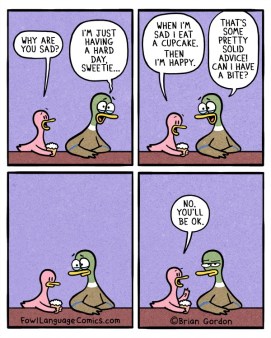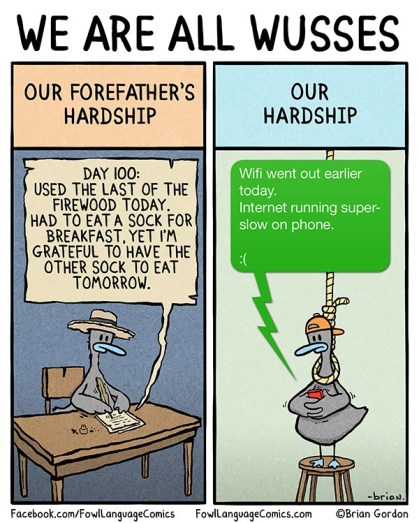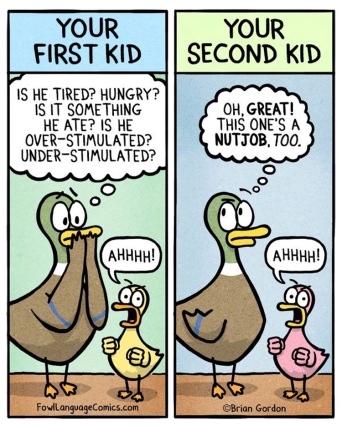Therapy is in part a dance of self-disclosure, an opportunity to reveal ourselves to another and – as one of my clients put it – “talk about things I don’t want to talk about.” In my practice at least, the self-disclosure is a two-way street; in developing a therapeutic relationship my clients get to know me as a real person with a real life, and learn at least some of the context of that life.
It’s a two-way street, but not an equally heavily trafficked one. When it comes to therapist self-disclosure, there are two caveats I try to always keep in mind: 1) the person who does most of the talking in the session is the one who’s getting the therapy, and 2) therapist self-disclosure should be undertaken in the service of the client, not the therapist.
I’m therefore pretty mindful of what, when, and how much I share with clients, and usually keep my disclosures to experiences I’ve had with other clients that I think might be instructive, or snippets from my own life that could inform what my client is currently facing.
Through the course of my career, there have been two occasions when the self-disclosure has been less controlled and less controllable: seventeen years ago, when my ever-growing belly announced that something was going on with me, and the past couple of months as I’ve been going through the process of grieving my dad’s passing.

Birth and death. Seismic life events that break apart and then reconfigure every aspect of our lives. Both times I’ve felt the vulnerability of having a part of my out-of-the-office life follow me into the office, and the concern that its presence might hijack the session and compromise both my own and my client’s ability to put the focus squarely on them.
What I’ve learned (well initially learned, promptly forgot, had to re-learn) is that it is actually much easier and less distracting to acknowledge what’s with us and invite it out into the room than it is to try and pretend it isn’t there. Grief, fear, nausea, all emotions and sensations that seem to breed apace the more we try and ignore or deny them.
What I’ve also (re)learned is that therapy is at its heart a relational connection, and that a large part of the value of that comes from its being a two-way street. I’ve certainly benefited from that — I’ve felt cared for and supported, and watched clients who would describe themselves as undesiring or incapable of connection show tenderness and warm compassion.
I like to think my clients have also benefited, either from recognizing their capacity for responding to and empathizing with another, or from seeing that grief and loss is universal. We all experience it, we all benefit from having others (and ourselves) bear witness to it, we can all find a way to move through it.



